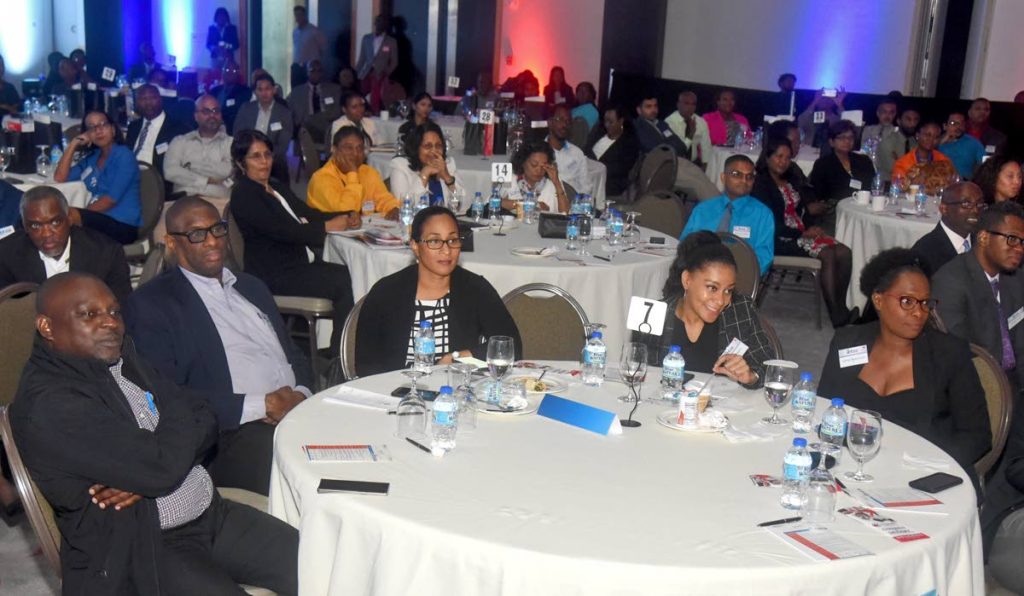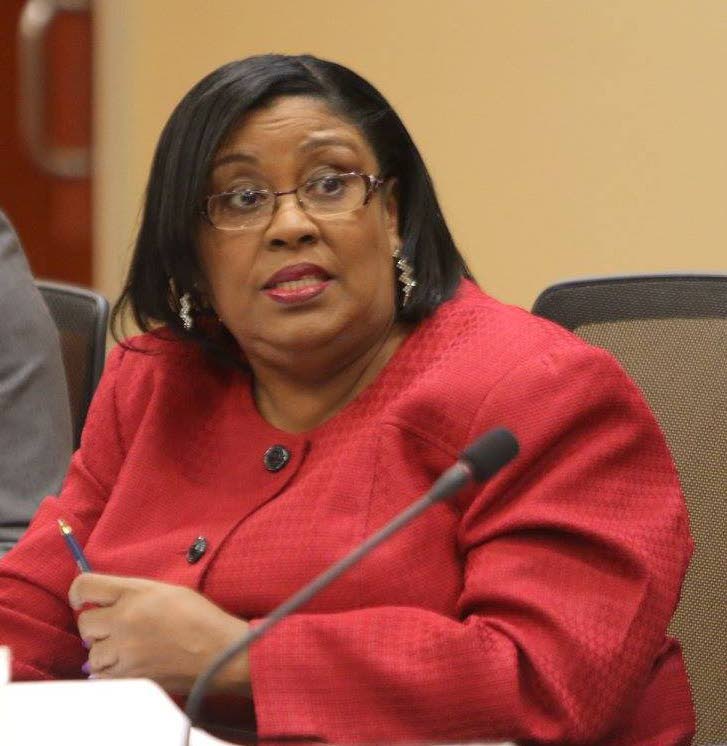Digital economy will improve quality of life for citizens

GOVERNMENT plans for TT to become a digital economy were outlined by Minister of Public Administration, Marlene Mc Donald, when she addressed an ICT Business Symposium hosted by iGovTT at the Hyatt Regency, recently.
“The world is changing and it is doing so much more rapidly than before, thanks to constant evolutions and innovations in the field of technology. It certainly does not serve our country’s interests if we sit idly by and allow ourselves to be left behind while the rest of the world moves on,” Mc Donald warned more than 300 ICT professionals from the public and private sectors.
Hosted by IGovTT, which functions as the National Information and Communication Technology Company, the high-level symposium was aimed at driving Government’s agenda to advance the implementation of the National Information and Communication Technology (ICT) Plan for transforming TT into a knowledge-based economy.
Noting that Government recognised that ICT offered immense potential to deliver government services more efficiently and more effectively, Mc Donald explained that Cabinet had approved the national ICT Plan 2018-2022 in August 2018. “This plan provides a roadmap to guide this country’s transition from transactional e-government to transformational e-government. Responding to the competitive challenges of globalisation, as well as addressing the demands of citizens in the public sector, the Ministry of Public Administration works to ensure that Government Ministries, departments and agencies can fully leverage the major ICT developments that are unfolding globally, to provide effective end-to-end public service delivery that reduces the time spent transacting with Government,” Mc Donald said.
The line minister said she was pleased with the transformation drive undertaken in the public sector through services such as the Single Electronic Window (SEW), TTBizLink, eTax and ttconnect.
“As we move to make more services available online for both citizens and businesses, they will benefit exponentially by being able to obtain government services ‘anytime and anywhere’, without the constraint of business hours or the locations of agencies, as long as internet connection is available,” Mc Donald said.
She outlined the three main components of the planned e-service delivery framework which include: core infrastructure – to build on the Government network (GovNeTT), a delivery platform for eServices which will provide authentication, ePayment, and SMS gateway services to enhance the convenience and value of eService to the public.
Also part of the framework is: Efficient back-end Systems and Processes – to gear up the back-end systems for integration with the online eServices offered on the portal to enable a one-stop processing service from submission to approval for its customers, and Service Delivery Channels – to continue building ttconnect as the single information portal for multi-channel delivery of government services.
Chairman of iGovTT, Esther Le Gendre, contended that with new concepts and solutions emerging on an ongoing basis, ICT was the most important pillar of business and social development in the modern era. “The National ICT Plan points to the transformational role which ICT must play in delivering the continuous progression of people, business and government toward the country’s vision of “first world nation status” by 2030,” she pointed out.
Le Gendre added: “As we look to the future and witness how digital technologies are transforming the way we work, we at iGovTT are driven to do our part to increase our ICT footprint and the value we bring to our customers while keeping pace with the country’s national development path.”
The iGovTT Business Symposium 2018 heard headline presentations from Dr. Arvo Ott, a digital government expert from Estonia, the most advanced digital economy in the world; Mervyn Eyre, President & CEO of Titanium sponsor Fujitsu Caribbean; Enrique Gutierrez, Microsoft Digital Crime Unit; PwC’s Behram Faroogh, Asif Qayyum and Zia Paton; Rakesh Goswami, TSTT; and Dr. Auliana Poon, founder of Tourism Intelligence International.



Comments
"Digital economy will improve quality of life for citizens"